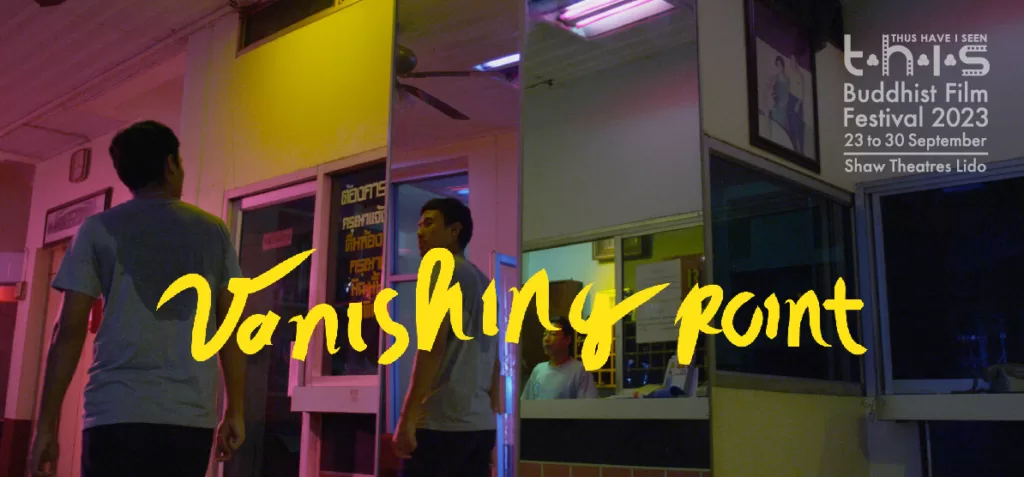TLDR: The concepts of Death, Suffering, and Rebirth are major concepts in Buddhism, yet it may be hard for us to understand them via reading the suttas alone. Watching movies may present a different view of how people facing these challenges make sense of them.
The classic Beauty & the Beast “Tale as Old as Time” song evokes emotions as I reminisce about my grandmother’s stories during childhood. Stories have a magic that draws us in, like finishing a new Harry Potter novel in one sitting. For Buddhists, some of us are probably acquainted with the Jataka Tales (moral Buddhist tales typically geared toward kids). Movies are similar, telling stories in a visual format.
Here are 3 reasons why I am choosing to watch movies at the upcoming Thus Have I Seen Buddhist Film Festival (THISBFF) 2023, happening at Shaw Theatre Lido Singapore, between 23rd and 30th September (No spoilers here – except movie synopsis and materials provided by THISBFF)
Death – the Dreaded 5 Letter Word:

The word – “Death,” evokes strong visceral emotions in most of us. Death is said to be as natural as birth, for with childbirth, there would be eventual death. I learned this in secondary school Biology class. Nevertheless, accepting this reality remains a challenge for me.
I struggle with the idea of being separated from my loved ones. As I advance into midlife, labels like “Boomers” strike fear as it remind me that I am of a separate generation from Gen Z/Millennials. More importantly, it reminds me that I am so much closer to my death than when I was in my 20s.
Moreover, in 2019, I experienced a car accident, requiring life-saving surgery and four blood transfusions. This event profoundly heightened my perception of Death.
The movie – Review, where three terminal patients share their journey in facing death, intrigues me. How would I confront my mortality if faced with death? Hopefully, I won’t have to confront this reality for some time. However, the Buddha reminds the monks that we should maintain constant mindfulness of death, not just once a day but on every breath interval.
As a layperson, I find the practice of the 5 Daily Remembrances, one of which reminds us that “I am of the nature to die. There is no way to escape death,” is a practice that I can aspire to better follow, to start my acceptance of Death.
What Suffering Means to You?

I’ve come across the argument that ‘Suffering‘ inadequately captures the Pali term Dukkha, and I concur. I find ‘Unsatisfactoriness’ a more fitting representation of Dukkha.
Unsatisfactoriness covers a whole greater gamut of the challenges we face in our daily living – getting a passionately written article rejected can be a major source of discontent and pain to the aspiring writer, a non-event even for most people, and not warranting the big S-word “Suffering.”
Life’s small sufferings are portrayed in the movie – Vanishing Point, via two men, a young idealistic journalist and a purposeless middle-aged motel owner. It shows suffering isn’t transcended until we calm our minds. For me, the practice of Mettā (Lovingkindness) and Karuna (Compassion) has been my go-to emotion regulation practice to soothe my mental suffering, as I face the inevitable challenges in daily life.
In the movie – The Mountain Path, a young man embarks on a journey to meet a Buddhist hermit master atop a mountain. Along the journey, he encounters various personalities who teach him how to live in the world within himself.
This reminds me that the Buddha’s teaching has a significant emphasis on mind training, focusing on transforming us inside out. It involves using our daily life experiences as raw materials to transform our minds and ultimately help us overcome our suffering.
We cannot seek to run away from our pain via external means, we can only overcome the pain via internal mind-training. Bhāvanā or meditation, is the vehicle to train our mind, as taught by the Buddha.
How do we define Rebirth?

Rebirth is a concept that may not be universally accepted by all Buddhists and has been defined and explained in different forms.
The good news in Buddhism is that the Buddha encourages us to suspend our beliefs and discover the truth for ourselves. While I am not anywhere close to understanding the deep Dhamma of rebirth, I have been intrigued by the story of Angulimala’s rebirth from a murderer to a monk.
Angulimala, the infamous murderer who killed 999 people and would have killed his mother if not for Buddha’s intervention, intriguingly captures rebirth. The idea of rebirth from a murderer into a monk is vividly captured in the verse that the Buddha asked Angulimala to share with a pregnant mother who was having a problem birthing her child:
Angulimala shared: “Sister since I was born with the noble birth, I have never purposely deprived a living being of life. By this truth may you and the infant be safe!‘”
It is said that Angulimala’s noble birth, or spiritual rebirth, began with his ordination as a monk and culminated in his attainment of his Arahant (Fully Enlightened One). From this story, I see that a form of rebirth is when we shed our former role or identity to take on a new one.
What happens when we cannot fully transition into the new aspired role though? In the movie, “I Leave Home,” Sungmin, aspires to be a monk but is turned away for being over-aged.
I look forward to seeing his purpose/identity re-evaluation. This resonates with my journey, as I need to re-evaluate my goals and timeline for my mid-career transition, from being a Counsellor to a Data Analyst. Some changes may take longer than we planned, so how do we navigate such challenges?
Watching movies is the present commonly accepted form of listening to stories, for movies tantalise our eye senses besides our hearing senses.
Beyond stimulating the basic 5 senses, I hope these films can stimulate your 6th sense – the mind-sense. I hope it enables you to better understand and discover the wisdom of the above Buddhist concepts and beyond I look forward to reading some insights from the movie-goers to THISBFF 2023 in the HOL blog soon.
Wise Steps:
- Look up the Thus Have I Seen Buddhist Film Festival (THISBFF) 2023 website here and check out the movies that interest you.
- Get 10% off your tickets with this Promotional Code: AHOLTHIS2023


